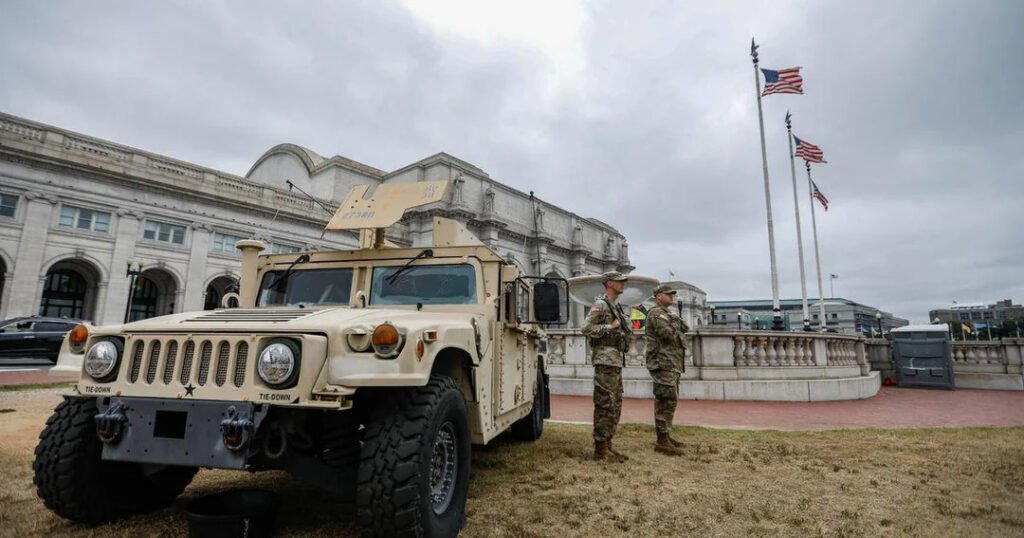
- Home
- Uncategorized
- Pentagon Plans National Guard Deployment in Chicago as Trump Escalates Crackdown — Local Leaders Push Back
Pentagon Plans National Guard Deployment in Chicago as Trump Escalates Crackdown — Local Leaders Push Back
The Pentagon is reportedly drafting plans to deploy thousands of National Guard troops to Chicago as part of former President Donald Trump’s broader crackdown on crime, immigration, and homelessness. The move, expected to take shape as early as September 2025, has already sparked outrage among city and state officials who insist the measure is both unnecessary and unconstitutional. Federal Plans Without Local Consent According to multiple reports, Pentagon officials are preparing strategies for large-scale military involvement in Chicago, alongside similar deployments in Los Angeles and Washington, D.C. While the Pentagon describes the effort as “contingency planning,” critics argue that the decision is politically motivated, targeting Democratic-led cities without their consent. Governor J.B. Pritzker and Chicago Mayor Brandon Johnson made it clear that no request was made for National Guard assistance. Both leaders insist Chicago does not face an emergency that would justify such a dramatic show of federal force. Crime in Chicago is Declining Supporters of the Trump administration’s plan often cite crime as the justification. But data tells a different story. In the past year alone: Homicides dropped by over 30% Robberies fell by 35% Shootings decreased by nearly 40% City leaders point to community-based programs, constitutional policing, and neighborhood investment as the real drivers behind these improvements. They argue that introducing armed federal troops could reverse progress, escalate tensions, and damage fragile community trust. Local and National Backlash Democratic leaders across the country have blasted the proposal. Congressman Hakeem Jeffries described the plan as a “manufactured crisis” designed to justify authoritarian measures. Senator Tammy Duckworth and Lt. Governor Juliana Stratton warned that military occupation of civilian spaces would be a dangerous precedent for American democracy. Even some Chicago residents who welcome increased safety remain wary. Many recall the painful memories of militarized responses during past unrest and worry that armed troops could intimidate rather than protect communities. Legal Challenges Ahead Under U.S. law, the president can only federalize National Guard troops without state approval under limited circumstances through the Insurrection Act. Legal experts suggest that unless the administration invokes such powers, a court battle is almost inevitable. What This Means for Chicago and Beyond If carried out, the deployment of National Guard troops to Chicago would mark one of the most significant peacetime federal interventions in a U.S. city. Beyond its immediate impact, it could set a precedent for future administrations to override state authority and deploy military force in civilian areas. For now, the Pentagon insists planning does not guarantee deployment. But with tensions rising between federal and local officials, the coming weeks will be crucial in determining whether Chicago becomes the next flashpoint in Trump’s ongoing crackdown.

Related Posts
- Comments
- Facebook Comments































